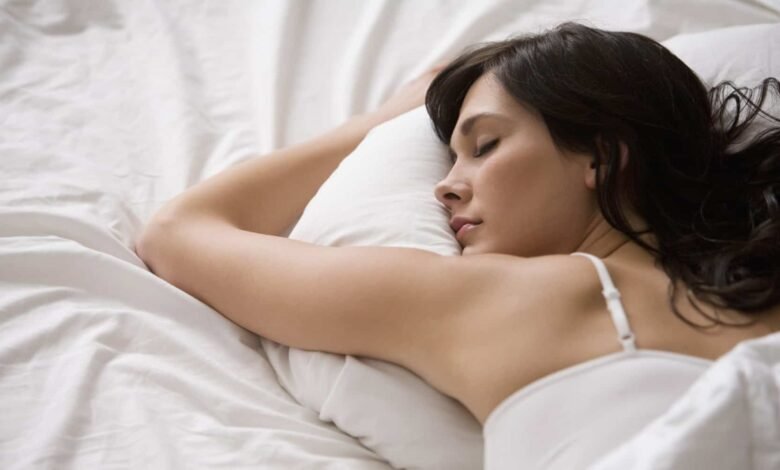Sleep apnea

What is sleep apnea?
Sleep apnea is a common condition characterized by intermittent reduction or cessation of breathing during sleep.
There are two main types of sleep apnea: obstructive sleep apnea (OSA) and central sleep apnea (CSA). Mixed sleep apnea is a combination of both types of sleep apnea.
Apnea is defined as the cessation or near cessation of breathing for 10 seconds or more, resulting in a decrease in airflow to about ¼ of normal levels. If the decrease is not so severe, the condition is referred to as hypopnea.
The underlying mechanism of apnea differs between species. Normally, the brain sends a signal to the respiratory muscles to expand to get air into the lungs.
In central sleep apnea, the brain fails to send this signal appropriately, resulting in disordered and unregulated breathing.
In obstructive sleep apnea, the brain sends the signal to the muscles in time to start breathing, but the airway turns out to be blocked.
Thus, the air flow to the lungs decreases during sleep. Sleep apnea is rare in children and is more common in men than women.
What are the symptoms of sleep apnea?
One of the most recognizable and common symptoms of sleep apnea is fatigue and sleepiness during the day.
People who suffer from this disorder feel constantly tired, even though they sleep for a long period of time.
This is due to the interruption of breathing, which causes a disruption of the normal sleep cycle, preventing the reaching of deep phases of sleep that are important for the recovery of the body.
Insomnia is also a common problem with sleep apnea. Although it may sound paradoxical, people with this condition may have difficulty falling asleep and wake up frequently during the night due to breathing interruptions.
This ongoing sleep imbalance has long-term health effects and can lead to other serious problems such as depression and anxiety.
In addition, people suffering from sleep apnea may experience difficulty with concentration and memory.
During the day, they may have delayed reactions, which can affect their productivity at work or pose a safety risk if they are driving a car or working with dangerous tools.
Anxiety and irritability are also common with sleep apnea.
People with this disorder may experience mood swings, get angry easily, or feel depressed.
These symptoms are related to stress and the accumulation of physical and emotional exhaustion.
Headache is also among the adverse effects of sleep apnea.
People who suffer from this problem often experience chronic headaches that can be difficult to control with regular pain relievers.
Difficulty performing work duties is also a common problem for people with sleep apnea.
As already mentioned, lack of quality sleep can lead to reduced productivity and possible workplace hazards.
One of the main causes of sleep apnea is a blockage of the airways, which can be caused by various factors, such as excess weight, hereditary predispositions, problems with nasal hair or the palate.
What are the causes of the disease?
The causes depend on whether the apnea is obstructive or central. Central sleep apnea can be divided into two groups – primary sleep apnea without any other cause or secondary – a consequence of another condition. The most common causes of central sleep apnea are:
- Stroke;
- Heart failure;
- Some medications;< /li>
- Congenital anomalies;
- High altitude.
In obstructive sleep apnea, the respiratory muscles cause breathing, but air cannot pass through and reach the lungs. Some of the most common causes of compromised airflow are:
- Distorted nasal septum;
- Nasal congestion;
- Narrowing of airways;< /strong>
- Enlarged tonsils;
- Weak muscles of the pharynx;
- Injury of the vocal cords;
- Injury that has resulted in narrowing of the airway;
- Positioning of the tongue at the back of throat.
What complications can sleep apnea cause?
Sleep apnea can disrupt your sleep, make you feel sleepy during the day, or start you suffer from insomnia.
If left untreated, sleep apnea can contribute to other diseases such as high blood pressure, congestive heart failure, pulmonary hypertension, cardiovascular disease, stroke or even death.
Sleep Apnea Treatment
An important part of sleep apnea treatment is lifestyle changes and adherence to certain behaviors.
Most people get better sleep apnea and have fewer attacks if they sleep in a certain position. Most often, sleeping on your back is the cause of most manifestations of sleep apnea.
Therefore, positioning the body on one side when sleeping is an easy way to improve sleep.
Another way to relieve sleep apnea is to maintain good sleep hygiene by avoiding eating or exercising before bed.
Excessive intake of alcohol, smoking should be avoided. Also, with obstructive sleep apnea, it is very important to follow the prescribed treatment regimen for the causative disease.
How to protect yourself from sleep apnea?
- If you are overweight, it is good to try to normalize it, because it is pointed out as the main risk factor for sleep apnea in most studies conducted.
- If you are a smoker, it is recommended that you stop smoking.
- Regular physical activity and good sleep hygiene are also among the measures that can be taken to reduce the risk of developing sleep apnea.



